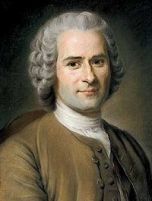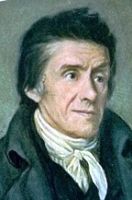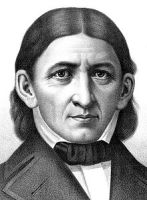Lecture
4: Visionaries: Education
Adam Blatner
(This is the 4th
of a 6-lecture series for Senior University Georgetown, October
17, 2011)The first lecture, introduced the idea of visionary and the different types, considering the paradigm shifts happening today.
The second lecture explored new dimensions of philosophy.
The third lecture considers visionaries in field of psychology, and extensions of psychology in the direction of creativity, play, and other forward-seeming themes.
This is the fourth lecture and deals with visionaries in the realm of Education, which is one extension of psychology.
The fifth lecture considers the idea of the evolution of consciousness. (See the lecture given on that subject in 2009).
The sixth lecture considers the the topic of interspirituality. (This also speaks to the lecture series given for the Senior University in the Spring of 2008.)
and there's a related webpage that summarizes the series.
Background
 |
 |
 |
To the right are portraits of four key visionaries: Jean-Jacques Rousseau at the upper left was an influential writer in the mid-18th century, the "Enlightenment" in Western Europe. He imagined that children were by no means just little adults, but had their own modes of thinking---and should therefore be approached with a modified approach to education. To the upper right is a picture of a Swiss educator who built on these ideas, Pestallozi. On the lower left was Friederich Frȍbel, another innovator, influenced by Rousseau and Pestalozzi, who invented the notion of a pre-school, a "kindergarten," in which a range of natural childish activities in art, music, dance, play, games, etc. was part of the curriculum. Building on this a half-century later was the pioneering work of Maria Montessori, lower right. (Many more photos of her can be found on the internet.)
Education is of course an extension of psychology, and especially several fields that come together. There is child development---how do kids naturally mature and what can best promote their strengths? There is also the question of what young people need to know in the 21st century---it's different from what they needed to know how to do in the 20th century!
Education now is recognized as a process that goes on through life---as is evidenced by elders continuing their learning in our own Senior University Georgetown and this class as an example. For adults, there's a name for the art of helping grown-ups further their educatonal goals. For kids the art of education is also called "pedagogy," while for adults, working off those word roots, it's called "androgogy." Education for adults must of necessity be driven more by what adults want to learn and what they're willing to put up with than kids.
4 Carrying on from lectures 2 and 3, philosophy and psychology, what do we then teach? And is teaching even the right word?
5. How pedagogy, andragogy what age start some of those principles?
6 Some of the people to be discussed,
7. Instruction vs stimulus... efficiency!
8. How to cultivate spunk, self-motivation, risk-taking, creativity thinking for 21st century
Not just obedience and take test to show that...
PhD in some circles only for substantial contributions something new...
May not be so today...
9. Pestalozzi, influenced by Rousseau, who spoke of the natural state of humanity,, the Enlightenment philosophy, and Froebel... open to the innate potentiality of curiosity, vitality in childhood, versus the oppression of mere instruction...
10. Whitehead around 1916 spoke out against this idea of dry ideas versus picking up on the why something is worth learning about—he called it Romance— http://www.anthonyflood.com/whiteheadeducation.htm
11. I’ll give just a tiny appetizer here about Maria Montessori, because her schools and theories are still going strong, especially for early childhood education.
Mainly, set up a well-designed learning environment, and the kids’ natural tendencies towards curiosity and mastery will do the rest. Sort of a build it and they will come philosophy.
12. She’s a cultural figure worth remembering because your kids may be sending their kids to a montessori school? Both my kids did this for their kids.
What about yours?
13. Raised in Italy, she was bright, took engineering classes, finally went to medical school in her early 20s when again it wasn’t right for women to do this. Mntessori thus figures in the history of feminism, too.
14. She made a splash in many centers. It should be noted that a number of cultural trends in America worked against her approach—the ideal of efficiency and mass education for the inflow of immigrants...
15.. Her son Mario assisted her, like Anna Freud assisted her father. Major figures often have more or less obvious helpers who do a lot of the ground work.
16. Montessori’s story is complex and has many aspects. One of these is that it might be argued that like Freud and others, efforts to keep her ideas pure conflicted with others who sought to distill out the key elements and integrate them more widely.
17. Rudolf Steiner’s Anthroposophy and his theories about education added a more spiritual bent, but there are now a number of Waldorf schools trying to amplify his efforts. How many people have had kids or friends who explored this frontier?
18. John Dewey influenced a host of teachers who wanted to get beyond the merely fulfill the expectations of administrators who were trying to fulfill the expectations of the school board who were themselves representative of fundamentally conservative and ignorant constituency.
The thing is the fundamental paradigm that knowledge involves information, wisdom isn’t different from knowing a lot of facts, the $64 thousand dollar quiz shows.
Assessment of true wisdom is hardly recognized today. In Fiddler on the Roof, If I was a rich man has a line, “when you’re rich, they think you really know.”
The idea that there are people who can think more creatively, more flexibly than most folks is basically unknown. This is one of the key points in this lecture.
19. Creativit in Education
Things are changing. We need people who can compete with bright kids in other countries.
There are more kids in China who are in what we would call the upper 10% than there are all kinds of kids in the USA. Ditto India, because they have three or four times the number of people. So what can we do? We can teach to what is needed rather than teach in the way folks were taught a century ago.
20. Pink’s book
21. There’s a phenomenon known as flow. You’ve tasted it in all probability. It’s when you’re totally in the groove and what begins to happen is that you’re smarter or more skilled than you knew you were. What’s that about and what can we do to help people tap into it?
22. Moreno, again, and Paul Torrance, one of the pionners in education—and more specifically, creativity in education, and weaving in action methods, role playing, learning by doing, experiential education.
23 Pause here and recognize that Moreno’s visionary status includes a very perceptive awareness. There is a powerful pull towards laziness and mental inertia—I personally consider this to be as pervasive and even more basic than Freud’s theories about what messes us up. Sure, sex, but I think mental laziness, what Whitehead called “fatigue of reason,” the unwillingness to think—because thinking involves risk-taking. You don’t always know what you think or have a hunch about is right. So you back up and give up.
24 Dare to reinvent the wheel.
25. The qualities of character drawn forward overlap with what I said last week about positive psychology, and creativity, but the dark side is the theme of courage.
In a competitive culture in which a mistake is a big deal, goes on your permanent record, play it safe squashes all the rest. I’m being subversive here! Courage means freedom to mess up and talk about it without being shamed. Courage requires a teacher who can pause in the teaching and get curious about why a seemingly good idea doesn’t work.
26, I agree with this idealistic vision, but note that it misses what I consider to be the main category, the part of the mind that is exquisitely sensitive to social cues, to people thinking you’re dumb, or slowing the class down. We just want to learn what’s going to be on the test, so stop distracting the process.! Let’s not underestimate the power of peer pressure, and the power of picking up on the teacher’s sense of stress and urgency in the contemporary information-oriented climate. It’s like stopping a mumbled religious ceremony in which people really think God wants to hear the right words or will be annoyed, and asking, “Wait, what is the meaning of what we’re saying??” What few clergy want to admit is that they could not begin to answer that question.
Similarly, teachers are anxious because they’re teaching what they’re told to teach and cannot really explore the question right below the surface: Why do we have to learn this stuff?
27. Again, a subversive chart: what is this alternative perspectives and scenarios? What does that do to right answers on the test?
Here is the safety feature that feeds in, attitudes to risk, environment—taboo to ask about.
28 Educators and Employers aren’t on the same page yet. Should they be? How much are school superintendents rewarded for true visionary status rather than satisfying the school board who may be fairly ignorant—believing in obsolete ideas about what education should be?
29. Other visions I’ve entertained:
30 I am not alone by any means, but I do support and have offered national teleconferences on experiential education. This I consider to be a visionary element, drama, sociodrama, thinking about new ways of learning. On my website several articles. Google Adam Blatner + Education, sociodrama,
31. Another vision is the idea of teaching practical psychology in the schools, anti-bullying, etc.
32 other aspects of education
33 And again role playing is good as a teaching tool. But also the use of a user-friendly language based on role—all the world’s a stage... 8.
34 need for User friendly... ness in computers...
35 user friendly language
36. Adult education, senior university
37. Principles andragogy... perhaps begin to apply them in high school or earlier?
38. So this idea of re-examining assumptions of pedagogy for a generation raised on cell phones may invite further re-thinking...
39 principles again, notices situation, societal groups, types of learning, broadening our thinking. Steve Jobs never had a college education. What are they good for? This question is being asked more intensively nowadays, and you’ll be called to help or not help in your grandkids college, maybe.
40 Another innovation, a visionary, is right brain /left brain thinking... what is the non-rational brain? Montessori, Steiner, and others had a lot of respect, but they don’t respond to right versus wrong answers, you can’t teach to the test.
41. What do YOU think?
42. Some ideas I have..
43.. Other ideas
44. This is just a beginning. I have other ideas, and I’m sure you do too.
c.
e y.